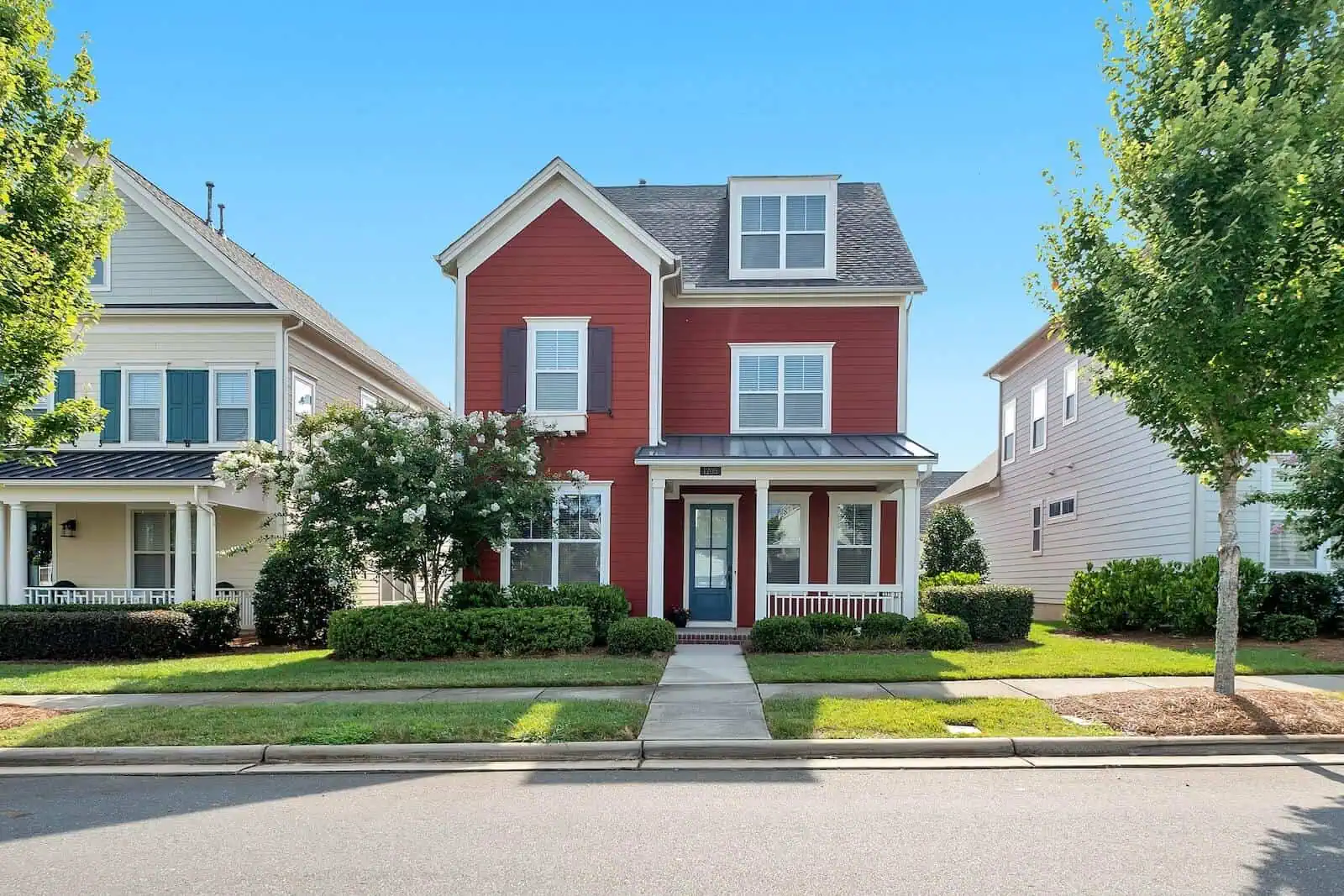Inheriting a home can be a bittersweet experience. On one hand, you’ve just acquired a valuable asset, but on the other hand, you may be left with the big responsibility of selling the home if you don’t want to live there or maintain it as an investment property.
If you’ve inherited a home in the Pittsburgh area and have decided to sell it, this article from HomeBuyers of Pittsburgh will provide you with a step-by-step guide on how to do just that – but this also applies to any inherited home sale in the U.S.! Keep reading to learn more.

Selling Your Inherited Home: 8 Simple Steps to Follow
To successfully sell your inherited property, you should follow these steps:
1. Determine Your Home Ownership Status
Most of the time, you’ll inherit a house as either the lone owner or a joint owner with other family members.
If you’re the only inheritor of the property, you have complete discretion over whether to sell it, but if you’re a co-owner, you must first consult with all other owners to reach an agreement on the sale of the property.
If multiple heirs agree to sell an inherited property, it’s crucial that you all decide who will pay for the various expenses associated with selling a home, including repairs, staging, marketing, and closing costs.
By having these discussions earlier on, any confusion or disagreements that could later delay the sale of the inherited home can be avoided.
Note it’s best to wait to list the house for sale until you’ve received legal ownership of it. Also, keep in mind that once you have control of the property, you’re responsible for its upkeep and debts, including the mortgage if it hasn’t been paid off, till you sell it.
2. Find a Real Estate Agent (Unless Selling the Home Yourself)
If you’re not familiar with the real estate market in Pittsburgh – or the market in which you’ve inherited the home – hiring a reputable real estate agent to assist you with the inherited home sale may be a good bet.
An experienced real estate agent will provide you with valuable advice on preparing the property for sale, pricing it appropriately, marketing it effectively, and help you get the best possible price for your home. When selecting a real estate agent, it’s essential to look for someone who is knowledgeable about the local market, has experience selling homes similar to yours, and has a proven track record of success.
Read our post “How to Sell a House Yourself” for helpful insights if you prefer to sell your home without using a real estate agent.
3. Calculate the Value of Your Home
This can be done by hiring a professional appraiser or asking your real estate agent to conduct a comparative market analysis.
The appraisal or market analysis will take into account the property’s location, size, condition, and other factors to determine its fair market value, which should influence your home’s listing price.
4. Prepare the Home for Sale
You should get your Pittsburgh inherited home ready for sale before putting it on the market. This can entail repairing any electrical or plumbing problems, sprucing up the curb, repainting, and changing any outdated fixtures.
To make the house appear more appealing to potential buyers, you should also consider staging it. This involves decluttering, rearranging furniture, and adding decorative touches to create a more inviting atmosphere.
A real estate agent can provide you with a list of recommended repairs and improvements that can help raise the value and marketability of your home (or see our guide in the link).
5. Market the Home
Once you’ve determined a listing price and completed all the necessary preparations, it’s time to list your inherited home for sale.
Your real estate agent will use a variety of marketing channels to promote the property, including online listings that highlight the home’s best features and attract potential buyers, open houses to allow potential buyers to view the home in person, and direct mail campaigns.
They may also reach out to their network of buyers and agents to generate more interest in the home.
6. Review Offers and Negotiate
After the home has been listed for sale, you’ll start receiving offers from potential buyers within a few days or weeks.
Your real estate agent will help you review each offer, negotiate, and determine the best one to accept. Be prepared for many counteroffers, inspections, and contingencies at this stage.
While you want to get the best price for your home, you also want to ensure a smooth and timely closing. So, to ensure a successful transaction, be willing to make compromises while negotiating with potential buyers about certain aspects of the home sale.
7. Accept an Offer
To accept an offer, you’ll sign a purchase and sales agreement (PSA) with the homebuyer you settle on after negotiations.
The PSA will outline the terms of the home sale, including the sale price, closing date, the amount the buyer is required to deposit as earnest money, and any contingencies.
It’s important to have a real estate agent or real estate attorney review the PSA before signing to ensure that everything is in order and that your interests are protected.
8. Close the Sale
The last step in selling an inherited home in Pittsburgh is the closing process.
Here, three main things will happen: The buyer will pay for the house in full, you’ll transfer ownership of the house to them, and sign a purchase agreement (this is a different document from a PSA) to complete the sale of the home.
As the home seller, you’re responsible for settling any outstanding debts or liens on the property, as well as transfer taxes and other closing charges associated with the home sale. The house sale might not go through if you’re unable to pay off any debts secured by liens on the property.
A real estate agent, among other qualified professionals, can provide you with a breakdown of closing fees and walk you through the process to make sure everything is handled correctly.
What Are the Tax Consequences of Selling an Inherited Home?
After completing your inherited home sale, it’s essential to finalize your tax obligations. In Pittsburgh, you might be liable for the following tax obligations:
-
Inheritance Tax
This is a tax on the transfer of property from a deceased person to their heirs.
The tax rate varies depending on the home’s worth and the relationship between the deceased person and the heirs. In general, the inheritance tax rates in Pittsburgh, Pennsylvania, are as follows:
- 0% for transfers to a surviving spouse or a parent who inherited a home from a child aged 21 or younger.
- 4.5% for transfers to direct descendants (children and grandchildren).
- 12% for transfers to siblings.
- 15% for transfers to other heirs (including nieces, nephews, cousins, and unrelated individuals).
It’s important to note that the inheritance tax is due within nine months of the decedent’s death. If the tax is not paid within that time frame, interest and penalties will be incurred.
Notably, you won’t be required to pay inheritance tax if the departed transferred ownership of the residence to you at least two years before their passing.
-
Capital Gains Tax
In addition to the inheritance tax, you may also be subject to federal capital gains taxes when you sell an inherited home.
Capital gains taxes are based on the difference between the selling price of the property and its “basis”, which is the value of the home at the time of the original owner’s death.
For example, if the fair market value of the home at the time of the decedent’s death was $200,000, and you sell it for $250,000, you’ll need to pay capital gains tax on the $50,000 difference. However, if you sell the home immediately after you inherit it and the property has not increased in value or has decreased in value, you’ll not owe any capital gains taxes.
It’s also worth noting that certain exemptions and exclusions may apply to capital gains taxes on inherited property.
For example, if you move into the inherited house and decide to sell it after two years of living there, you may be eligible for a capital gains tax exclusion of up to $250,000 (or $500,000 if you are married and filing jointly).
-
Income Tax
You must pay income tax on the rent you receive if, after inheriting a home, you decide to rent it out while considering whether to sell.
We recommended that you work with a tax professional when selling your inherited home to ensure that you’re meeting all of your tax obligations.
HomeBuyers of Pittsburgh: The #1 Professional Home Buyer
If you’ve recently inherited a home and decided to sell it, you may be feeling overwhelmed by the sale process. Between cleaning, repairs, and dealing with real estate agents, the traditional home-selling process can be stressful and time-consuming.
Fortunately, there is an alternative option that can help you avoid all of these headaches: selling your property to HomeBuyers of Pittsburgh.
At our cash home-buying company, we understand the challenges of selling an inherited property, and we know that you’re likely dealing with a lot of emotions during this time, and the last thing you need is the added stress of navigating the conventional home-selling process. That’s why we’re here to help.
When you sell your home to us, you don’t have to worry about cleaning, making any repairs, or real estate agent fees. We buy homes as-is, which means you can leave behind any unwanted furniture or personal belongings and walk away with cash in hand. Working with HomeBuyers of Pittsburgh, you can rest assured that you’ll receive a fair price for your home and that the sale will be quick and stress-free.
Get in touch with us today at 412-444-8914 or [email protected]. We’ll be happy to answer any questions you’ve about selling your inherited home and provide you with a no-obligation offer for your property within hours of contacting us.
With our help, you can move on to the next chapter of your life with ease and peace of mind.









